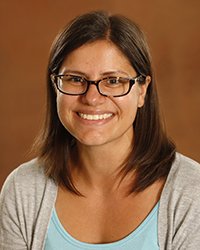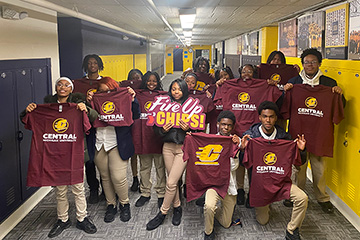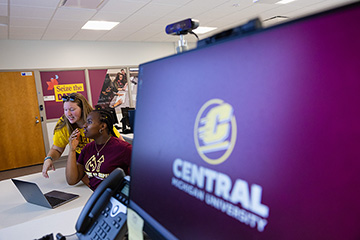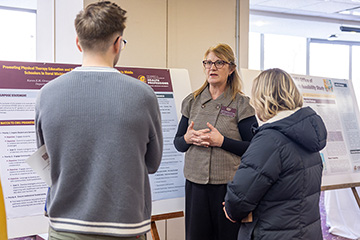Making CMU a more equitable workplace
Strengthened mentoring among changes expected through grant
A second round of grant money intended to help remove barriers hindering women from progressing in STEM fields is expected to make Central Michigan University a more equitable place to work and more attractive for job candidates and students.
“I think it’s going to change the culture of the university,” said Tracy Galarowicz, associate dean for the College of Science and Engineering.
Cultural dynamics, along with policies and procedures, and inclusive hiring, were identified as key areas on campus where improved conditions could help women progress in STEM-related careers.
The three areas were identified through a 2019 grant that prompted self-examination at the university.

CMU received its second round of money in August to implement changes identified during that process, said Kirsten Weber, a professor in the School of Communication, Journalism, and Media. A new office will be created to oversee the process.
Weber and Galarowicz are part of a workgroup implementing the changes. The work focuses on STEM-related fields, but the changes will affect the entire campus.
One of the first steps involves enlisting men on campus.
Advocates and Allies is a program that builds local support networks along two tracks. Allies are men trained to help promote gender equity within programs and departments.
Through the program, men role-play various situations and then work through what helped create the most equitable situation.
It’s currently scheduled to debut on campus on April 11 and 12, Weber said. While faculty in STEM programs are receiving invitations, the program is open to any man on campus, including staff members.
“I think, through programming, we can make a difference,” Galarowicz said.
Some of the changes will focus on policies that can limit access to decision-making and faculty committees.
“If we don’t look at our policies and procedures, it’s still going to create an environment for inequality,” Weber said. Those policies include committee structure and how faculty are evaluated.
One focus is strengthening access to mentoring. During interviews for the first round of grant funding, both women and men on the faculty were asked about their mentoring experiences.
“Men and women just experienced mentoring differently,” Galarowicz said.
The new office will oversee the changes while also promoting more inclusive hiring by providing confidential information about local resources like childcare and schools to job candidates.
The changes aim to benefit students, too. A more equitable experience for female faculty members will encourage women to more strongly consider pursuing degrees in STEM-related fields, Weber said.
“If we invest in our women faculty, there’s a direct translation in investing in our students,” she said.




